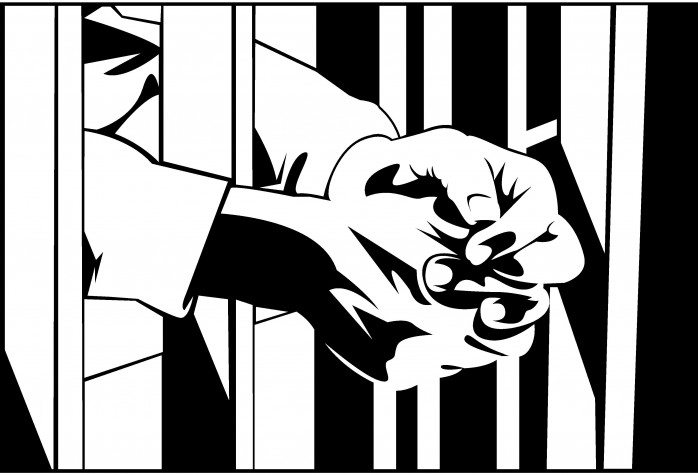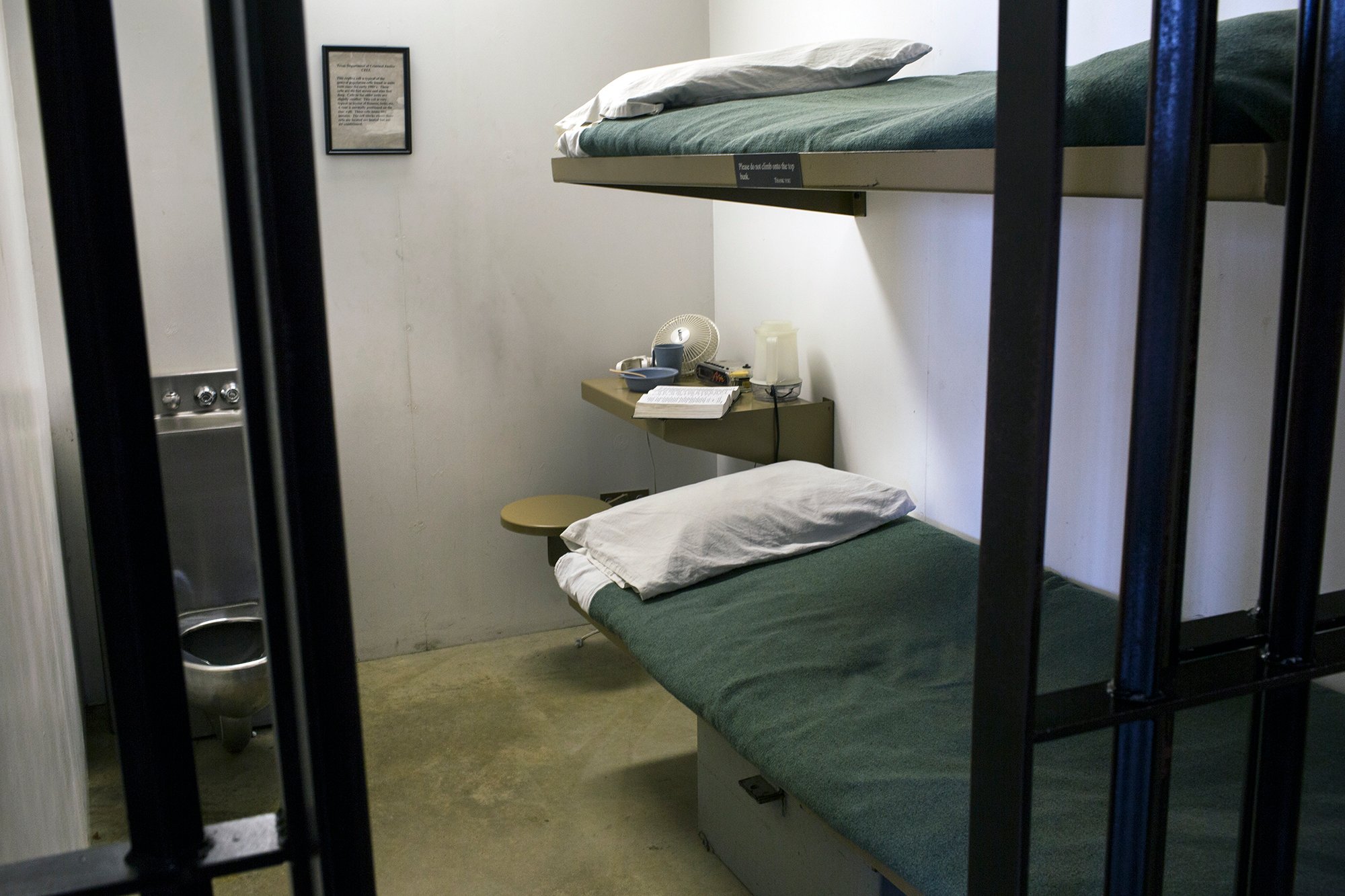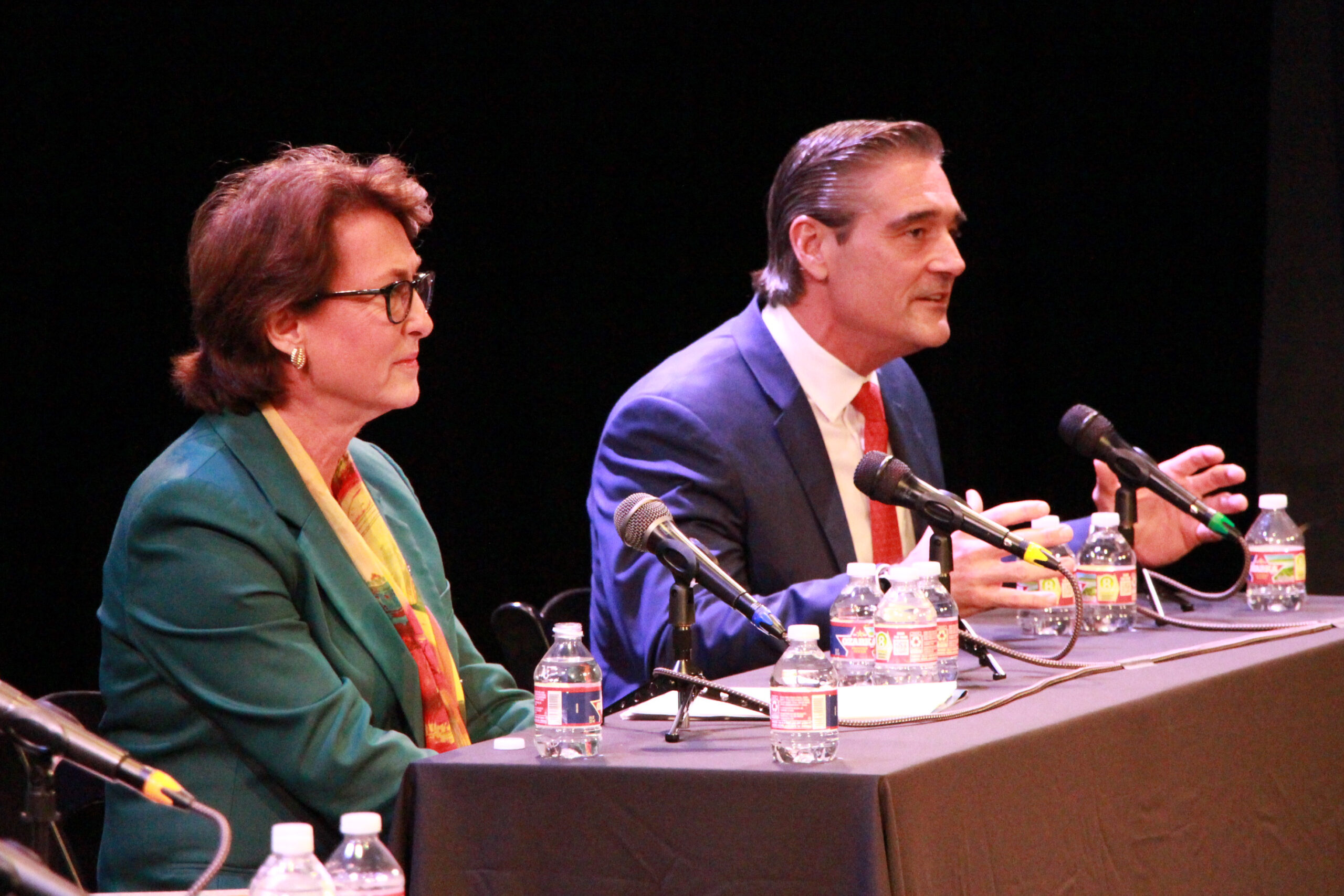
Study: In Harris County, Poor Defendants Get More Time
Yesterday, the Houston Chronicle reported on preliminary results from a study of the Harris County Jail which shows that inmates who can’t afford bail ultimately receive longer sentences than those who do.
The study, called Project Orange Jumpsuit, was conducted by Gerald Wheeler, a doctoral researcher and retired director of Harris County pretrial services, and Gerald Fry, an attorney. The pair contracted with a professor at the University of Texas-Arlington to randomly select a representative population of more than 6,500 Harris County defendants charged during 2012 and early 2013 and, after analyzing their pre-trial status and sentencing outcomes, came to some pretty firm conclusions. More than age, race, or the nature of the charge, the authors write, “what generally determines the defendants’ fate is his or her economic status. If the accused is unable to afford financial bail, he or she will quickly learn, in Harris County, the punishment is weeks or months of pretrial incarceration with the strong likelihood of pleading guilty for more time behind bars than their bond counterparts.”
First, let’s have a quick pretrial primer.
Say you’re arrested in Harris County, charged with a crime, given a court date and a bond amount. The amount of your bond will fall within a certain range according to the type of crime. If someone can give the county the amount in cash, you can leave. That’s called bailing out. When you show up for your court date, the county returns the money minus a small administrative fee. If no one can offer that much cash, you can turn to a bail bondsman, who promises to pay the county the bond amount if you fail to show up for court. That’s called bonding out. The net price of bond is more than bail, because bondsmen charge a higher fee, usually 10 percent of the bond, for providing that service. (For a more in-depth look at what’s wrong, in general, with the bail bond system, check out this Justice Policy Institute study from last year.)
So you already have two tiers in which, as it so often does, being poorer costs more money. If you happen to have access to $2,000 in cash at midnight on a Thursday, your pot-smoking son can come home and you’ll get most of your money back. If you don’t have that kind of dough on hand, it’ll cost you $200, which you will not get back.
But what about those who can’t afford the $200? They remain in detention until their court date or plea deal.
There is a third possibility: the personal recognizance bond. That’s when a person is released without financial obligation because they can be expected to show up for their court date. But while most major cities assign PR bonds about a quarter of the time, Project Orange Jumpsuit found that in Harris County, the practice is rare bordering on negligible. In 2012, the county only granted PR bonds in 1 percent of felony arrests and 7 percent of misdemeanor arrests. That means most people are either paying up (“bond defendants”) or being locked up (“detained defendants.”)
The study found that detained defendants had it worse all around. They were less likely than bond defendants to receive deferred adjudication or probation. And they were about half as likely to have their charges dismissed. That means in addition to having spent time in jail before their trial—which, obviously, the bonded defendants didn’t—detained defendants were likelier to get additional jail time.
Finally, among bonded and detained defendants who were sentenced to jail, the detained defendants received longer sentences. In brief, for being poor, they’re punished twice.
Project Orange Jumpsuit takes its name from the hypothesis that the clothes a defendant wears before a judge—whether the orange jumpsuit of a detainee or the street clothes of a bond defendant—heavily influence the outcome. Its authors, a doctoral researcher and an attorney, have done much to prove it. As this is a preliminary report, the completed study can be expected to garner more attention and, one hopes, address whether Harris County has an exceptional disparity problem or is merely a solid example of how the monetary bond system creates (at least) two tiers of justice.


